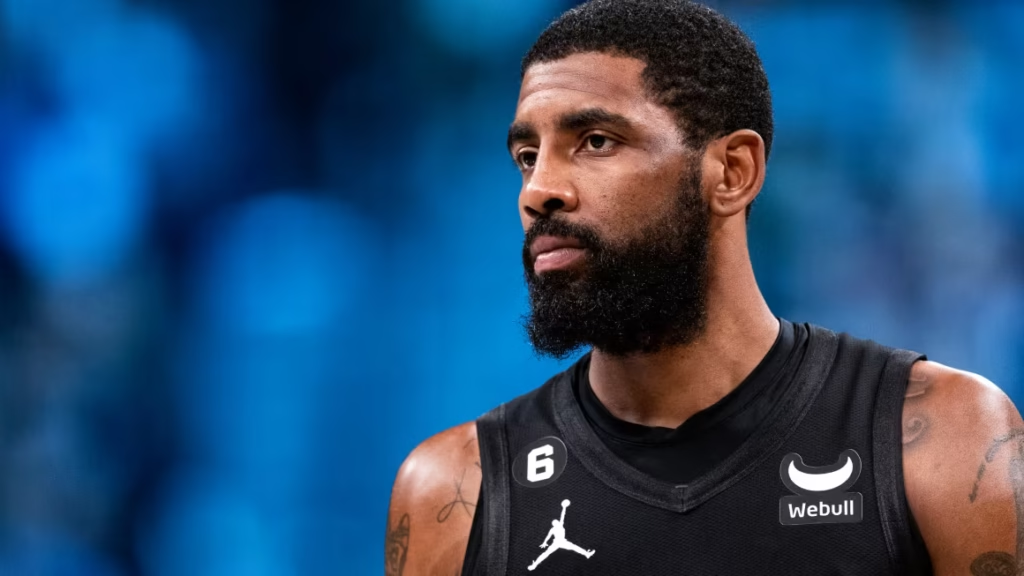
When Kyrie Irving stood tall in Brooklyn—refusing the COVID-19 vaccine and choosing principle over a paycheck—many called him everything but courageous. He was vilified, ostracized, mocked in the press, and painted as difficult, selfish, even reckless.
But to someone like Craig Hodges, Kyrie’s stance wasn’t just brave—it was righteous.
“They still do! He’s STILL being villainized, you know what I’m sayin’?” Hodges told me during our recent conversation. “And that’s the cold part about this whole thing.”
Hodges knows this terrain all too well. The former NBA sharpshooter and outspoken activist has never shied away from speaking truth to power—whether that meant confronting Presidents, challenging the NBA’s silence on social justice, or questioning the price of compliance. So when Kyrie took heat for going against the grain, Hodges didn’t flinch. In fact, he applauded it.
“If he were a lawyer at the top of [his] game doing whatever he’s doin’, how much magnitude even if he was a $240 million dollar lawyer—it would be he could take his stance however he wants,” Hodges explained. “But take that political stance outside of the courtroom or law office, you know?”
That double standard, Hodges argues, is baked into the very structure of sports and entertainment. “We have to know that it’s a fine line to dance—that NBA and entertainment wants you to portray,” he said. “And if you study and research and be blessed to have a certain consciousness and have a certain character and courage…”
He paused for a moment, then went on: “That’s one of the brothers that you have a way of contacting—reach out and tell that brother I appreciate what he’s been doing.”
Hodges shared his own struggles trying to connect with today’s players through the modern NBA machine. “I don’t know how to reach out and get in touch with him other than going through that old network… and you know how that is: ‘Yeah, this is Craig Hodges calling for Kyrie Irving… this is Craig Hodges calling for Brian Shaw because I want to help…’ Then Shaw is with the Clippers and I’m out here in L.A., you know what I’m sayin’? My calls are unanswered and I understand why.”
Still, Hodges isn’t bitter. He’s appreciative—especially of those who, like Kyrie, understand that their platform extends beyond basketball. He’s grateful for those of us who see the bigger picture, who see the lineage.
“It’s not just Craig Hodges,” he reminded me. “It’s Jack Johnson. Paul Robeson. Muhammad Ali… we have a blanket. Jim Brown. We have a blanket of people who have done and who have given us great examples.”
To Hodges, Kyrie isn’t an anomaly—he’s an extension of that lineage. A continuation of the rebel athlete tradition that dares to say, I am more than an entertainer.
“And those examples can be followed,” Hodges said. “There can be repercussions to it—and that’s one of the things that the installation of the salaries that are being paid today… they can instillate players of a certain degree where they can have generational wealth, you know?”
That wealth, he argues, provides a cushion—but not an escape from responsibility. Not when you’re awake. Not when your conscience won’t let you coast.
“So someone like Kyrie, brilliant enough to see his impact—not only on the court, but also financially—but also realizing that basketball and my finances still doesn’t equate to what my conscious and my spiritual point of reference has to be in order for me to be able to enjoy those things that I’ve worked so hard for,” Hodges said.
“And should I not be able to—based upon under the Constitution—you have certain unalienable rights, you know? Like life, liberty and the pursuit of happiness.”
That pursuit, Hodges notes, must be real—not performative. Not symbolic.
“Trump is about to have a ‘Liberation Day’ on April 2nd,” Hodges pointed out. “This time it has to include us, you feel me? It can’t just be lip service.”
He closed the loop with a historical gut-check: “When we talk about the original Constitution, you can’t be serving tea and crumpets on the side and not even being considered as human beings.”
In Kyrie’s defiance, Hodges sees history.
In Kyrie’s grace, he sees legacy.
And in Kyrie’s struggle, he sees the same road he’s walked—with conviction, clarity, and the understanding that standing alone today often means standing for something bigger tomorrow.

